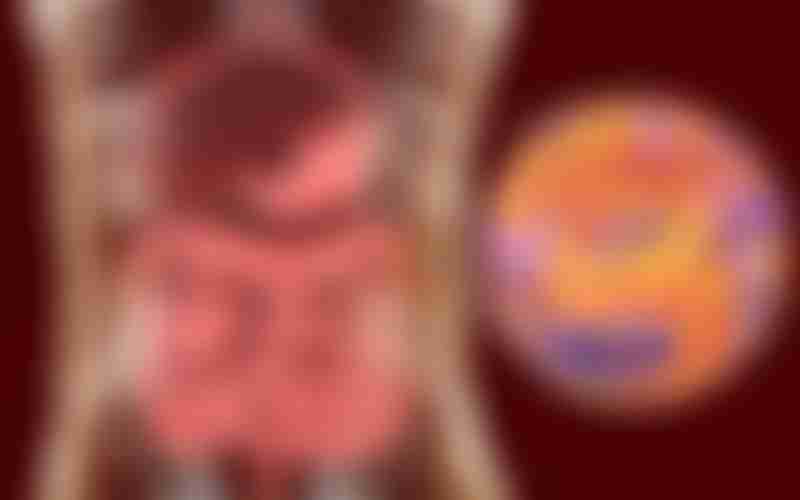What Are the Risk Factors for Stomach Cancer?

Source: Shutterstock
What is a risk factor?
Risk factors for cancer can increase your chances of developing the disease. These can include modifiable risk factors, which can be controlled (e.g. smoking and alcohol consumption), or non-modifiable factors, which cannot be controlled (e.g. family history and genetic predisposition).
If you have modifiable risk factors, you could change your lifestyle to reduce your risk of stomach (gastric) cancer. However if you are unable to, not all is lost – most people still manage to live with minimal disruption and worry with regular screening, and early treatment where necessary.
What are some risk factors for gastric cancer?
Here are several risk factors that increase your likelihood of gastric cancer.
Sex
Males are two to three times more likely to develop gastric cancer than females.
Age
While gastric cancer can occur in younger people, the chances of developing gastric cancer increase with age. Notably, over 6 in 10 people diagnosed each year are 65 years old and above.
Race/Ethnicity
Within the United States, gastric cancer is twice as common amongst minorities such as Hispanic, African American, Native American, Asian American and Pacific Islander people. It occurs less frequently in non-Hispanic White individuals. Internationally, persons of Japanese and Korean ethnicity are among the highest risk groups for developing gastric cancer.
Geography
Gastric cancer is more prevalent in East Asia, Eastern Europe and South and Central America. In 2020, close to two-thirds of gastric cancer cases were diagnosed in East and Southeast Asia. The highest incidence rate was seen in East Asia, with over 22 cases seen in every 100,000 people. In comparison, those hailing from Africa and North America have a lower likelihood of developing gastric cancer, with incidence rates of 3 to 4 cases in every 100,000 people.
Infection with Helicobacter pylori

Illustration of H. pylori bacteria in a human stomach. Source: Kateryna Kon/Science Photo Library
Helicobacter pylori (H. pylori) is a type of gut bacteria that attacks the stomach lining and can cause severe inflammation of the stomach. Infection with H. pylori is one of the strongest known risk factors for gastric cancer. In fact, studies have shown that people who are infected with H. pylori are up to eight times more likely to develop non-cardia gastric cancer. Beyond that, H. pylori infection also accounts for almost 90% of distal gastric cancers (cancers that occur in the lower half of the stomach). For this reason, the World Health Organization (WHO) has classified the bacteria as a Class I (definite) carcinogen.
Long-term infection with H. pylori may lead to the development of precancerous conditions, such as atrophic gastritis and intestinal metaplasia that damage the stomach’s inner lining. Eradication of H. pylori with antibiotics can therefore greatly reduce your chances of developing gastric cancer. If you exhibit symptoms associated with H. pylori infection, see your doctor who may prescribe antibiotics if H. pylori infection is confirmed.
> Find out more about the role of H. pylori in the development of gastric cancer
Weight
Obesity has also been linked with a higher risk of developing cardia gastric cancer (cancer that occurs in the upper half of the stomach). However, a review of recent studies examining the relationship between excess weight and gastric cancer risk remain conflicting, and may need further research.
Diet
Research has shown that certain foods and drinks may increase your risk of developing gastric cancer, including red meat, processed meats and salt-preserved foods. On the other hand, fresh fruits and vegetables may have a protective effect against gastric cancer and can lower your risk of developing gastric cancer. In particular, white vegetables (e.g. potatoes, cauliflowers, turnips, onions and parsnips) have been associated with a reduced risk of gastric cancer, as compared to other types of vegetables.
Alcohol use and smoking
While it’s no wonder that heavy alcohol consumption can cause liver damage, did you know that it can also increase your risk of developing gastric cancer? Of note, a recent analysis of 81 epidemiological studies found that any alcohol consumption was associated with around a 20% higher risk of gastric cancer, as compared to not drinking at all. In a similar vein, while smoking is usually associated with lung cancer, it has been established since 2002 that smoking causes gastric cancer as well. In an analysis of 32 studies, active smokers were found to have around a 87% and 60% higher likelihood of cardia and non-cardiac gastric cancers respectively, as compared to non-smokers.
Prior stomach surgery or health conditions
If you’ve previously had surgery to remove part of your stomach, you may be more likely to develop gastric cancer in the future. A possible reason for this is that your stomach is producing less acid, which would allow for more harmful bacteria to grow. The backflow of bile from your small intestine into the stomach after surgery may also contribute to the increased gastric cancer risk.
Having a history of other health conditions, such as pernicious anemia or achlorhydria, may also increase your risk of gastric cancer. Pernicious anemia occurs when your body cannot absorb enough vitamin B12 from foods due to insufficient intrinsic factor (IF). IF is produced by your stomach lining, and is needed to absorb vitamin B12. Because vitamin B12 plays an important role in producing red blood cells, your body’s ability to make new red blood cells is affected, resulting in fewer and abnormally large red blood cells. Pernicious anemia can be caused by some autoimmune diseases and some types of stomach surgery.
Inherited cancer syndromes
Inherited cancer syndromes are genetic disorders that increase your risk of developing cancer. They occur as a result of certain genetic mutations (changes) that you inherit from your parents. Approximately 1 to 3% of all gastric cancer cases globally can be attributed to hereditary causes. This can include hereditary diffuse gastric cancer (HDGC), familial intestinal gastric cancer (FIGC), familial diffuse gastric cancer (FDGC) and Lynch syndrome.
HDGC is an inherited cancer syndrome caused by mutation in the CDH1 gene, and is generally difficult to identify early on. Those who inherit the mutated CDH1 gene are at a 20% and 45% risk of developing gastric cancer by the age of 50, for men and women respectively. Subsequently, the option for preventative surgical removal of the stomach may be offered for those at risk.
Family history of gastric cancer
People whose first-degree family members (parents, siblings or children) have had gastric cancer will have a higher risk of developing the disease, regardless of whether they’re suffering from a hereditary genetic disorder. Notably, those from families with the CDH1 gene have an 80% lifetime risk of developing stomach cancer.
Precancerous conditions of the stomach
Precancerous conditions occurring in the stomach can elevate your risk of developing gastric cancer. These include atrophic gastritis, gastric epithelial dysplasia, intestinal metaplasia, and some types of stomach polyps.
Polyps are non-cancerous growths that are present on the lining of your stomach. While most types of polyps typically do not increase your chances of gastric cancer, adenomatous polyps (or adenomas) can sometimes become cancerous.
All in all, if you are worried about your risk factors for gastric cancer, it is best to consult your doctor to better assess your risk. This can help you understand your health better and determine if further testing is necessary for you.